Imagine it’s 2030 and I’m sitting around the table with my grandchildren. One asks, “Granddaddy, tell us about the war of 2020.”
“You mean the coronavirus outbreak?”
“Yeah, when all those people died, schools closed, and we stayed home.”
“Well, as the new year began, we started hearing more about this horrible sickness in China. They thought it was pneumonia, then decided it was a strange, new virus.”
“Where did it come from?”
“Apparently from a seafood market in a city called Wuhan. It spread rapidly. The first death happened later in January. Then a man in Washington state got the disease after returning from China. As other cases surfaced, the president stopped all non-Americans who travelled to China from entering the country.”
“And the disease kept spreading?”
“Yes, we heard about more cases in southeast Asia. By Valentine’s Day, over a thousand people had died in China.”
“What was happening here?”
“We were living life as usual. You went to school, we went to work, we had no restrictions. China was a long way from here. So was Washington, so we didn’t think it would affect us. By the end of February, though, coronavirus spread across Europe, especially Italy. People who travelled to Italy brought it home with them.”
“Then it came to America?”
“Yes, in early March, we started hearing about more cases here. People got scared. The fear caused panic and people hurried to purchase groceries and supplies. Shoppers filled stores and snatched up toilet paper, hand wipes and paper towels. Shelves were empty.
“We couldn’t find beef, canned vegetables, or canned meats. Stores couldn’t stock fast enough. Finally, state and local governments asked people to stay in and work from home. Schools dismissed. Churches and other gatherings, like funerals, couldn’t meet. Restaurants closed. People lost jobs. Airlines cut flights. Every day, information changed and the situation worsened as the virus grew and killed more people.”
“When did we start staying home?”
“About mid-March. We were told no more than ten people could gather and had to stay six feet apart. Social distancing, they called it.”
“Did Grammy have to work?”
“Yes, she and her coworkers courageously worked their shifts at the hospital. Our community rallied around them, brought in snacks, put up signs outside that read ‘Heroes Work Here.’ Churches held prayer times in the parking lot and our church did drive-through praying every Saturday, circling the hospital and lifting up staff and patients.”
“What about Aunt Rebecca?”
“She, too, was very brave as she went to the front lines to help fight the disease. CDC researchers and scientists studied the virus, learning how it spread and how to stop it. Other scientists worked hard researching treatments and making a vaccine.”
“What happened with church?”
“We closed the office and worked from home. We live-streamed our Sunday services on Facebook, then added streaming on our website. More people watched online than in person.
“As we began April, the president warned the next thirty days were critical for saving lives. Hospitals were already full. We went from social distancing to staying home except to get food or see a doctor. Then our governor issued a statewide order with tighter restrictions and cancelled school for the rest of the year. He called for everyone to do his part.”
“Did everybody stay home?”
“No. Even as death totals grew, some people still didn’t take this sickness seriously. College students travelled to the beach for spring break. A large Tampa church met with a full congregation. The pastor was arrested. People refused to believe the government was looking out for everyone’s safety.”
“Why?”
“Because they were irresponsible and selfish. This illness was named Covid-19. Someone came up with the term covidiot. A covidiot is a person who stubbornly ignored social distancing guidelines and helped spread the virus or who selfishly hoarded groceries and deprived others.
“What happened?”
“Eventually, the virus quit spreading and life returned to normal. Except now, normal means no shaking hands, no hugging, always wiping down your grocery cart and spraying Lysol on everything you buy before bringing stuff into your house, wearing masks during coronavirus season and getting vaccinated.”
“Wow, that really was a war, wasn’t it?”
“Yes, with an invisible enemy, but God got us through! We often quoted Joshua 1:9: ‘… Be strong and courageous; do not be afraid, do not be discouraged, for the Lord your God will be with you wherever you go.’”
“So how many people died?”
“Too many, Sweetheart, way too many.”
[David L. Chancey is pastor, McDonough Road Baptist Church, Fayetteville, Georgia. Join them this Sunday on their Facebook page, McDonoughRoadBaptistChurch/mrbc at 9:45 a.m. for an online Bible study and at 10:55 a.m. for a live broadcast of their worship service. Visit them online at www.mcdonoughroad.org. Contact him at [email protected].]





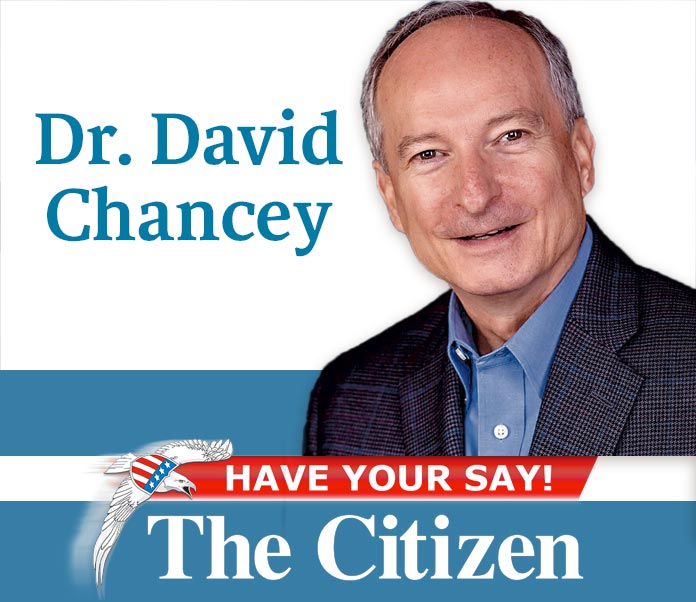
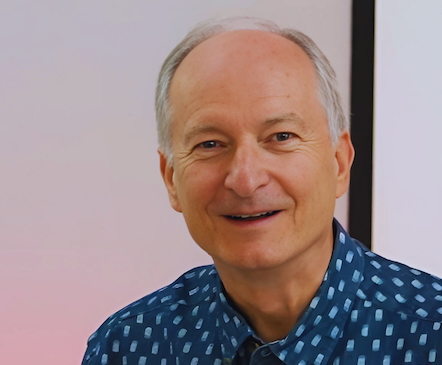

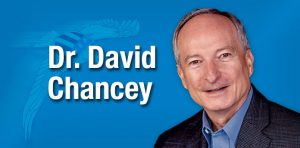

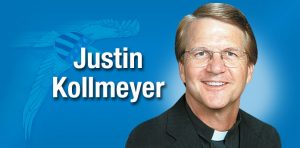
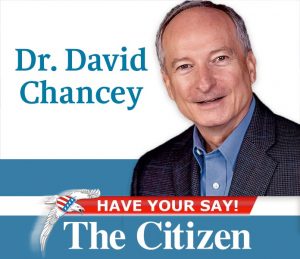
Leave a Comment
You must be logged in to post a comment.